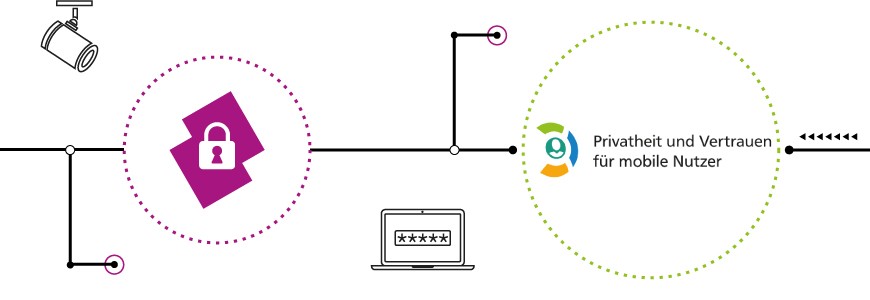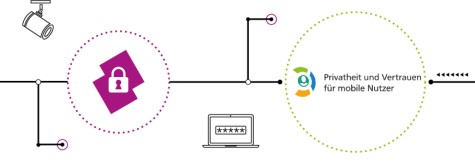The Research Training Group (RTG) plans major contributions to reversing this trend: It shall enable better privacy protection for users and better transparency, i.e. assessability of the network.
- Privacy protection shall be customizable to personal interests yet manageable by the lay person.
- Privacy-opposing economic or societal interests shall be better reconciled.
With regard to network transparency, the RTG will investigate what we call the trustworthiness assessment perspective: users shall be empowered to sufficiently understand the networked entities surrounding them; most importantly, they shall be able to assess, by sound measures, the expectable outcome and quality of a service or system usage considered – including potential risks. Coordinated research into the pair privacy protection – trustworthiness assessment suggests itself for two reasons:
- firstly, it corresponds to the increasingly ubiquitous pairing user-network
- secondly, the expected research results shall have transparency-reducing and transparency-increasing effects, respectively.
A conflict of objectives arises, at the latest, when users double as service providers in the net.
For centuries, privacy and trust have been relevant subjects for society. Hence, an interdisciplinary approach is compelling. Consequently researchers from computer science shall collaborate in interdisciplinary projects with those from the fields of law, economics, sociology, and usability research.
As an important technological vision, the RTG will conduct research into novel mobile devices that enable maximum control for the user. They represent their user to the digital network, govern privacy protection and trust assessment, negotiate between user and service provider, and command ad hoc networking. Novel approaches for such personal devices, for networked IT services, for social networks, and for sensor-based environments will be investigated.



